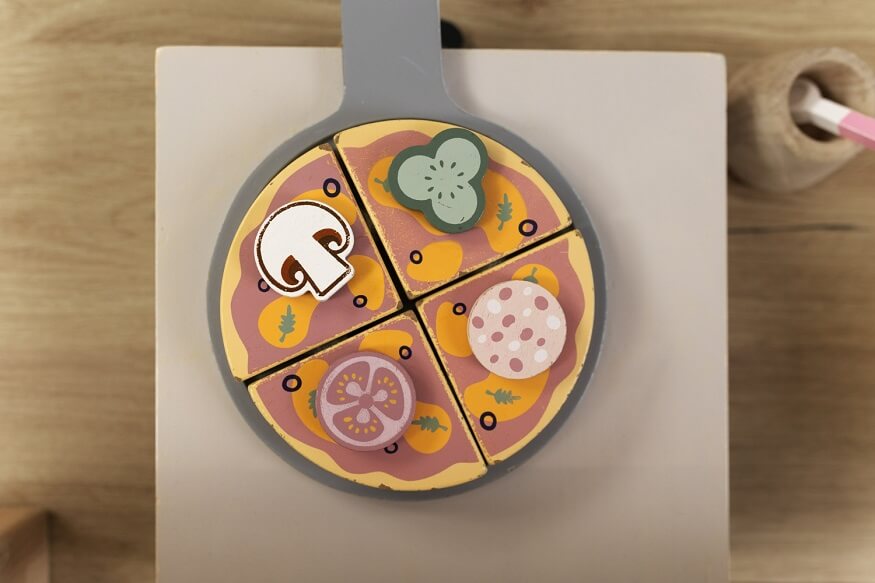Cooking games are a delightful way for children to explore the culinary world. These games not only provide entertainment but also teach valuable skills such as following instructions, basic cooking techniques, and the importance of nutrition. Here’s a closer look at the engaging world of cooking games for kids, exploring various types, benefits, and examples.
Types of Cooking Games for Children
Here’s an overview of the different types of cooking games:
1. Interactive Online Games
These digital games are played on computers, tablets, or smartphones. They often simulate cooking experiences, allowing kids to experiment with recipes and kitchen tools in a virtual setting. Examples include games like “Cooking Mama” and “Toca Kitchen.”
2. Board Games
Cooking-themed board games combine the fun of cooking with gameplay. These games often include elements of strategy, memory, and sometimes a physical component, like pretending to chop or stir. They are great for social interaction and family game nights.
3. Card Games
Card games with a cooking theme, like “Sushi Go!” or “Ratatouille: Remy’s Recipe Roulette,” are excellent for developing strategic thinking and quick decision-making skills. They are generally easy to set up and play, making them ideal for casual fun.
4. Educational Cooking Kits
These kits provide real cooking experiences for children. They often come with child-friendly recipes, non-hazardous ingredients, and cooking tools suited for young chefs. Such kits are fantastic for hands-on learning and introducing basic cooking skills.
5. Role-Playing Games
Role-playing in toy kitchens allows children to imitate cooking processes. They can pretend to be chefs, waiters, or restaurant managers, which fosters imagination and social skills. This type of play is common in preschool and early school years.
6. Puzzle and Strategy Games
Some cooking games involve puzzles or strategy elements, where children need to solve problems or plan steps in a cooking process. These games can be either physical games or simple apps that encourage critical thinking and planning skills.
7. Cooking Challenge Games
Inspired by cooking shows, these games involve setting up cooking challenges or competitions. Children can engage in pretend cooking contests or simple real cooking challenges under adult supervision, encouraging creativity and a sense of accomplishment.
Also Read: Advantages Of Turmeric Milk And Potential Side Effects For Children
Educational Benefits of Cooking Games
Cooking games are more than just playing. They have numerous educational benefits:
- Following Instructions: Cooking requires following recipes precisely. Games teach children to understand and follow instructions carefully.
- Maths Skills: Measuring ingredients involves basic maths skills. Children learn about fractions, addition, and subtraction.
- Science Understanding: Cooking is a practical application of science. Children learn about chemical reactions, states of matter, and more.
- Cultural Awareness: Many cooking games introduce dishes from various cultures, encouraging children to learn about different parts of the world.
- Nutrition Knowledge: These games can be used to teach children about healthy eating habits and the importance of balanced diets.
Enhancing Creativity and Imagination
Cooking games encourage children to be creative. They get to experiment with flavours and presentation, which enhances their imagination and artistic skills. This creative freedom boosts their confidence in trying new things.
Social Skills and Teamwork
Playing cooking games with others helps children develop social skills. They learn to communicate, share, and work as a team, which are essential life skills.
Also Read: How can children help their parents in the kitchen?
Examples of Fun Cooking Games for Kids
- “Toca Kitchen”: A mobile game that allows kids to experiment with different ingredients and cooking methods without any rules or limitations.
- “Overcooked!”: A cooperative console game that requires players to work together in a virtual kitchen under time pressure. It’s great for older kids and develops teamwork skills.
- “Cooking Class”: A real-life game where children participate in cooking classes. This provides hands-on experience and an opportunity to interact with peers.
- “Chef Solitaire: USA”: A card game that combines cooking with the challenge of solitaire. It’s perfect for developing strategic thinking.
- “My Very Own Chef Set”: A toy cooking set that encourages imaginative play. Children can pretend to cook and serve meals, enhancing their creative skills.
Also Read: Kitchen Safety: Avoiding Burns and Cuts While Cooking
10 cooking games for kids to play at home
Here are 10 cooking games for kids that don’t involve technology:
- “Chef Says” (similar to Simon Says): One player is the ‘Chef’ and gives cooking-related instructions (e.g., “Chef says, roll the dough”). Kids must only follow instructions that start with “Chef says.”
- Cooking-Themed Board Game, “Ratatouille: Remy’s Recipe Roulette”: A fun board game where players collect ingredients to complete recipes.
- Play-Dough Pizzeria: Children use playdough to create pizza toppings and simulate baking pizzas. It’s great for creativity and fine motor skills.
- “Sushi Go!”: A card game where players pick and pass sushi dish cards to score points. It’s excellent for quick strategic thinking and is food-themed.
- Pretend Cooking Show: Kids can host their own cooking show using toy kitchens or real ingredients. They can pretend to cook and explain their process, just like on TV cooking shows.
- “Chopped” Junior Challenge: Based on the cooking show “Chopped,” children are given a basket of random (safe and edible) ingredients and asked to create a dish.
- Cooking Scavenger Hunt: Create a list of kitchen items or ingredients for kids to find. It’s a great way to familiarise them with the kitchen and cooking tools.
- “Roll-a-Recipe” Game: Using dice and a chart of ingredients, kids roll to see which ingredients they’ll use to ‘create’ a recipe. This game encourages imagination and decision-making.
- Blind Taste Test: Children taste various foods while blindfolded and try to guess what they are. It’s a fun way to develop sensory skills and food vocabulary.
- Kitchen Science Experiments: Simple, safe experiments like making homemade ice cream, vinegar baking soda volcanoes, or edible slime. These activities blend cooking with basic science, making learning fun and interactive.
Also Read: 5 Montessori Kitchen Tools for Cooking with Your Toddler
These games are great for engaging children in culinary concepts while fostering creativity, learning, and lots of fun – all without the need for screens or digital devices. While cooking games are fun, safety is paramount. Online games should be age-appropriate and monitored. In real-life cooking, adult supervision is necessary, especially when using sharp tools or heat sources.
EuroSchool integrates engaging games into its curriculum, enhancing learning experiences and fostering students’ holistic development in a fun, interactive way.









